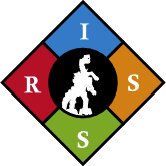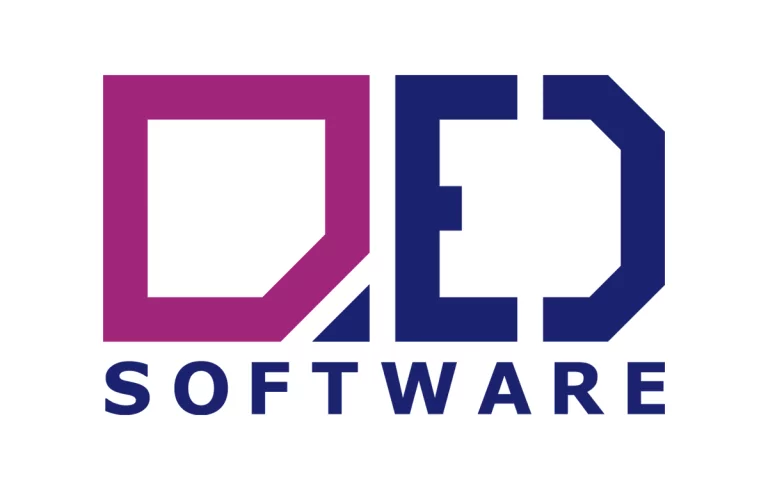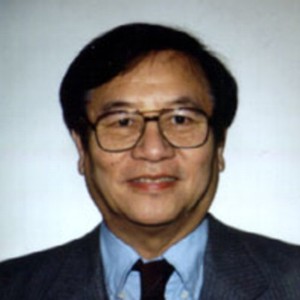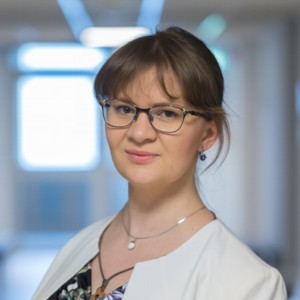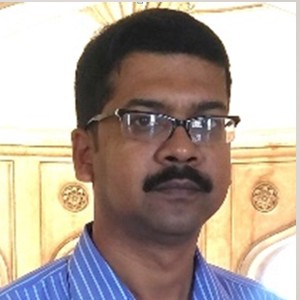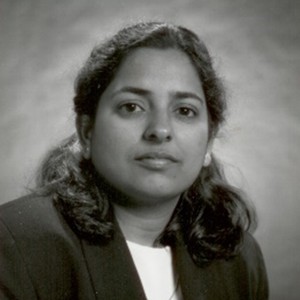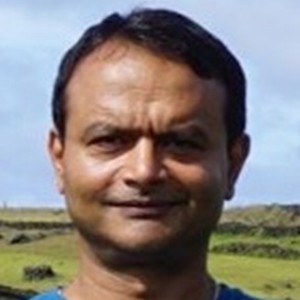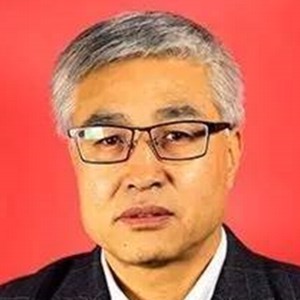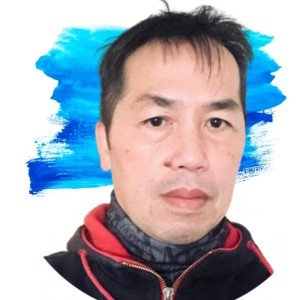Program Committee
Qiusheng An, Shanxi Normal University, China
Piotr Artiemjew, University of Warmia and Mazury, Poland
Nouman Azam, National University of Computer and Emerging Sciences, Pakistan
Mohua Banerjee, Indian Institute of Technology, Kanpur, India
Jan Bazan, University of Rzeszow, Poland
Urszula Bentkowska, University of Rzeszow, Poland
Joaquín Borrego-Díaz, University of Seville, Spain
Andrea Campagner, Università degli Studi di Milano-Bicocca, Italy
Yuming Chen, Xiamen University of Technology, China
Hongmei Chen, Southwest Jiaotong University, China
Zehua Chen, Taiyuan University of Technology, China
Davide Ciucci, Università di Milano-Bicocca, Italy
Chris Cornelis, Ghent University, Belgium
Jianhua Dai, Hunan Normal University, China
Tingquan Deng, Harbin Engineering University, China
Thierry Denoeux, Université de Technologie de Compiègne, France
Barbara Dunin-Kęplicz, University of Warsaw, Poland
Deyu Li, Shanxi University, China
Shifei Ding, China University of Mining and Technology, China
Weiping Ding, Nantong University, China
Hamido Fujita, Iwate Prefectural University, Japan
Can Gao, Shenzhen University, China
Yang Gao, Nanjing University, China
Anna Gomolinska, University of Bialystok, Poland
Salvatore Greco, University of Portsmouth, UK
Jerzy Grzymala-Busse, University of Kansas, USA
Shen-Ming Gu, Zhejiang Ocean University, China
Christopher Henry, University of Winnipeg, Canada
Mengjun Hu, University of Regina, Canada
Qinghua Hu, Tianjin University, China
Xuegang Hu, Hefei University of Technology, China
Bing Huang, Nanjing Audit University, China
Amir Hussain, Edinburgh Napier University, UK
Masahiro Inuiguchi, Osaka University, Japan
Ryszard Janicki, McMaster University, Canada
Andrzej Janusz, University of Warsaw, Poland
Richard Jensen, Aberystwyth University, UK
Xiuyi Jia, Nanjing University of Science and Technology, China
Chunmao Jiang, Harbin Normal University, China
Bin Jie, Hebei Normal University, China
Aquil Khan, Indian Institute of Technology, Indore, India
Marzena Kryszkiewicz, Warsaw University of Technology, Poland
Mihir Kumar Chakarborty, Jadavpur University, Kolkata, India
Guangming Lang, Changsha University of Science and Technology, China
Oliver Lenz, Ghent University, Belgium
Fanchang Li, Soochow University, China
Huaxiong Li, Nanjing University, China
Jinhai Li, Kunming University of Science and Technology, China
Jinjin Li, Minnan Normal University, China
Kewen Li, China University of Petroleum, China
Lei-Jun Li, Hebei Normal University, China
Tianrui Li, Southwest Jiaotong University, China
Tong-Jun Li, Zhejiang Ocean University, China
Yuefeng Li, Queensland University of Technology, Australia
Jiuzhen Liang, Changzhou University, China
Shujiao Liao, Minnan Normal University, China
Guoping Lin, Minnan Normal University, China
Yaojin Lin, Hefei University of Technology, China
Pawan Lingras, St. Mary’s University, Canada
Baoxiang Liu, North China University of Science and Technology, China
Caihui Liu, Gannan Normal University, China
Dun Liu, Southwest Jiaotong University, China
Guilong Liu, Beijing Language and Culture University, China
Wenqi Liu, Kunming University of Science and Technology, China
Jesús Medina, University of Cádiz, Spain
Jusheng Mi, Hebei Normal University, China
Duoqian Miao, Tongji University, China
Marcin Michalak, Silesian University of Technology, Poland
Mikhail Moshkov, King Abdullah University of Science and Technology, Saudi Arabia
Fan Min, Southwest Petroleum University, China
Hung Son Nguyen, University of Warsaw, Poland
Sinh Hoa Nguyen, Polish-Japanese Academy of Information Technology, Poland
Agnieszka Nowak-Brzezińska, University of Silesia in Katowice, Poland
Krzysztof Pancerz, University of Rzeszow, Poland
Witold Pedrycz, University of Alberta, Canada
Shenglei Pei, Qinghai Nationalities University, China
Georg Peters, Munich University of Applied Sciences, Germany
James Peters, University of Manitoba, Canada
Lech Polkowski, Polish-Japanese Institute of Information Technology, Poland
Jianjun Qi, Xidian University, China
Jin Qian, East China Jiaotong University, China
Yuhua Qian, Shanxi University, China
Taorong Qiu, Nanchang University, China
Sheela Ramanna, University of Winnipeg, Canada
Zbigniew Ras, The University of North Carolina at Charlotte, USA
Marek Reformat, University of Alberta, Canada
Sergio Ribeiro, Pontificia Universidade Catolica do Parana, Brazil
Henryk Rybiński, Warsaw University of Technology, Poland
Hiroshi Sakai, Kyushu Institute of Technology, Japan
Lin Shang, Nanjing University, China
Ming-Wen Shao, Chinese University of Petroleum, China
Yanhong She, Xian Shiyou University, China
Marek Sikora, Silesian University of Technology, Poland
Andrzej Skowron, Polish Academy of Sciences, Poland
Dominik Slezak, University of Warsaw, Poland
Roman Slowinski, Poznan University of Technology, Poland
Jingjing Song, Macau University of Science and Technology, China
Lukasz Sosnowski, Polish Academy of Sciences, Poland
Urszula Stańczyk, Silesian University of Technology, Poland
Jaroslaw Stepaniuk, Bialystok University of Technology, Poland
Lin Sun, Henan Normal University, China
Zbigniew Suraj, University of Rzeszów, Poland
Andrzej Szałas, University of Warsaw, Poland
Marcin Szczuka, University of Warsaw, Poland
Marcin Szeląg, Poznań University of Technology, Poland
Anhui Tan, Zhejiang Ocean University, China
Shusaku Tsumoto, Shimane University, Japan
Alicja Wakulicz-Deja, University of Silesia in Katowice, Poland
Renxia Wan, North Minzu University, China
Baoli Wang, Yuncheng University, China
Changzhong Wang, Bohai University, China
Guoyin Wang, Chongqing University of Posts and Telecommunications, China
Piotr Wasilewski, University of Warsaw, Poland
Lai Wei, Shanghai Maritime University, China
Ling Wei, Northwest University, China
Wei Wei, Shanxi University, China
Zhihua Wei, Tongji University, China
Marcin Wolski, Maria Curie-Sklodowska University, Poland
Wei-Zhi Wu, Zhejiang Ocean University, China
Shuyin Xia, Chongqing University of Posts and Telecommunications, China
Bin Xie, Hebei Normal University, China
Jun Xie, Taiyuan University of Technology, China
Jianfeng Xu, Nanchang University, China
Jiucheng Xu, Henan Normal University, China
Weihua Xu, Southwest University, China
Zhan-Ao Xue, Henan Normal University, China
Lin Xun Henan, Normal University, China
Hailong Yang, Shaanxi Normal University, China
Jilin Yang, Sichuan Normal University, China
Tian Yang, Hunan Normal University, China
Xibei Yang, Jiangsu University of Science and Technology, China
Xin Yang, Southwestern University of Finance and Economics, China
JingTao Yao, University of Regina, Canada
Yiyu Yao, University of Regina, Canada
Dongyi Ye, Fuzhou University, China
Hong Yu, Chongqing University of Posts and Telecommunications, China
Ying Yu, East China Jiaotong University, China
Xiaodong Yue, Shanghai University, China
Zhang Zehua, Taiyuan University of Technology, China
Yanhui Zhai, Shanxi University, China
Jianming Zhan, Hubei Institute for Nationalities, China
Hongying Zhang, Xi’an Jiaotong University, China
Hongyun Zhang, Tongji University, China
Li Zhang, Soochow University, China
Nan Zhang, Yantai University, China
Qinghua Zhang, Chongqing University of Posts and Telecommunications, China
Xianyong Zhang, Sichuan Normal University, China
Xiaohong Zhang, Shaanxi University of Science and Technology, China
Yan Zhang, Cal State University, San Bernardino, USA
Yanping Zhang, Anhui University, China
Zehua Zhang, Taiyuan University of Technology, China
Shu Zhao, Anhui University, China
Huilai Zhi, Henan Polytechnic University, China
Caiming Zhong, Ningbo University, China
Bing Zhou, Sam Houston State University, USA
Jie Zhou, Shenzhen University, China
Xianzhong Zhou, Nanjing University, China
Beata Zielosko, University of Silesia in Katowice, Poland
Li Zou, Liaoning Normal University, China


